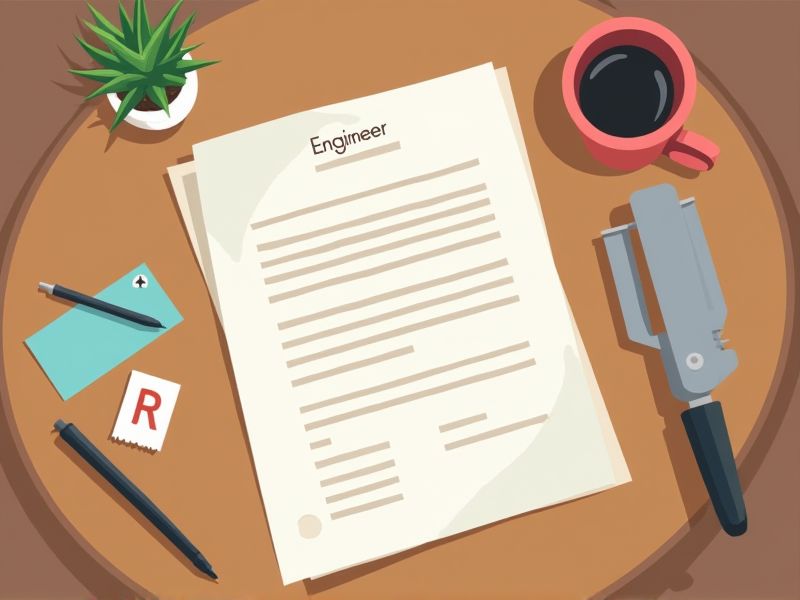
Railway engineers are tasked with designing, constructing, and maintaining rail systems, which demand precise technical knowledge for safe and efficient operations. Certifications provide validation of skills and comprehension of industry regulations, ensuring engineers possess both expertise and credibility. A certified professional is more equipped to handle complex engineering challenges, reduce the risk of errors, and innovate within the field. Below are essential certifications that a railway engineer might require.
Certified Railway Engineer (CRE)
A Certified Railway Engineer (CRE) ensures safety and reliability in railway operations by adhering to industry standards and best practices. This certification validates expertise, improving project efficiency and reducing costly errors. An engineer with CRE credentials gains increased trust from stakeholders, leading to smoother collaboration. Regulatory compliance becomes more manageable, as CREs possess the required knowledge for navigating complex railway regulations.
Professional Engineer (PE) License with Railway Engineering specialization
Obtaining a Professional Engineer (PE) license with a specialization in Railway Engineering demonstrates rigorous academic and practical understanding of railway systems. It ensures that the individual meets standardized safety and efficiency protocols essential for large-scale transportation projects. A PE license enhances credibility and trust with regulatory bodies, stakeholders, and clients, increasing the likelihood of successful project approvals. Engineers with this specialization are equipped to anticipate and mitigate risks specific to railway infrastructure, reducing potential operational disruptions and liabilities.
Certified Transportation Engineer (CTE)
Railway engineers navigate complex systems that require specialized knowledge; a Certified Transportation Engineer (CTE) provides expertise in optimizing rail networks, improving efficiency. Safety is paramount in railway operations, and CTEs possess the necessary skills to design and implement effective safety protocols. Effective integration of modern technologies into existing railway infrastructures necessitates a CTE's proficiency, ensuring seamless adaptation and operation. Regulatory compliance is crucial in rail transport, and a CTE ensures designs and projects meet all requisite standards and guidelines.
Project Management Professional (PMP)
The complexity of railway projects requires coordinated management; thus, attaining a Project Management Professional (PMP) certification equips engineers with standardized management skills. This certification ensures engineers can effectively handle resource allocation, critical to timely project completion and cost efficiency in railway systems. It helps in risk management, a crucial aspect given the safety concerns and potential hazards in railway engineering projects. A PMP certification enhances communication across multidisciplinary teams, essential for the integrated nature of railway infrastructure projects.
Certified Safety Professional (CSP)
A Certified Safety Professional (CSP) equips a railway engineer with critical safety management expertise, reducing accident risks and enhancing operational efficiency. Laws and regulations in the transportation sector demand a high standard of safety compliance, which the CSP ensures through thorough understanding and enforcement. The CSP designation provides engineers with the capability to analyze safety challenges, leveraging data-driven insights for better decision-making. Maintaining public trust and minimizing liabilities through demonstrated safety proficiency becomes essential, thus making a CSP qualification invaluable.
Signal and Communication Systems Certification (SCSC)
Railway engineers require Signal and Communication Systems Certification (SCSC) to ensure the effective and safe operation of train signaling systems, which directly affects passenger safety and train scheduling. Complex communication networks have become integral to rail operations, necessitating specialized knowledge for troubleshooting and optimization. Certified engineers can better adhere to industry standards and regulatory requirements, minimizing potential legal and operational risks. An SCSC provides engineers with updated skills to integrate modern technologies, enhancing overall railway efficiency and performance.
Track Inspection and Maintenance Certification (TIMC)
Railway safety heavily relies on proper track inspection, and the TIMC ensures engineers are equipped with the skills to identify potential hazards. Without such certification, oversight in maintenance might lead to derailments or other accidents, affecting passenger and freight safety. A TIMC-trained engineer can efficiently manage maintenance schedules, significantly reducing track-related failures. Regulatory compliance often mandates such credentials, ensuring railway operations meet industry safety standards.
Intelligent Transportation Systems Certification (ITSC)
Intelligent Transportation Systems Certification (ITSC) enhances a railway engineer's ability to integrate advanced technologies, improving efficiency and safety in rail operations. The certification ensures engineers are equipped with the latest skills necessary to manage complex systems, reducing the likelihood of errors and enhancing passenger experience. As rail networks become increasingly interconnected, ITSC provides engineers with the knowledge to optimize performance and manage infrastructure effectively. Employers value ITSC as it signifies a commitment to professional development and staying current with industry advancements.
Environmental Impact Assessment Certification (EIAC)
Environmental Impact Assessment Certification (EIAC) is crucial for railway engineers because it ensures that new railway projects adhere to environmental standards, minimizing ecological disruption. It helps identify potential environmental risks early, allowing for mitigation strategies that protect biodiversity and surrounding communities. Regulatory compliance is a significant outcome, which safeguards against legal challenges and project delays. Public acceptance of railway projects increases when stakeholders are confident that environmental concerns are addressed through EIAC.
Quality Management Systems (ISO 9001) Certification
Quality Management Systems (ISO 9001) certification ensures that railway engineering processes consistently meet customer and regulatory requirements, which enhances safety and reliability. Implementation of ISO 9001 fosters a culture of continuous improvement, leading to more efficient operations and reduced error rates in railway projects. Certification often becomes a prerequisite when bidding for international railway contracts, due to its recognition as a benchmark for quality. It also helps in instilling customer confidence by demonstrating a commitment to maintaining high standards across all engineering activities.
Summary
By obtaining certifications, you enhance your marketability in the railway engineering field. This often leads to increased job opportunities and potential salary increments. Employers may perceive you as more skilled, fostering trust in your abilities to handle complex projects. The certifications can also broaden your knowledge base, allowing for more innovative problem-solving approaches.
